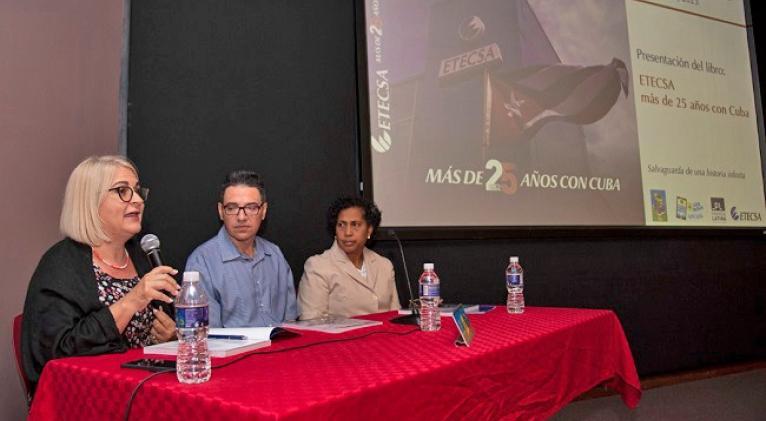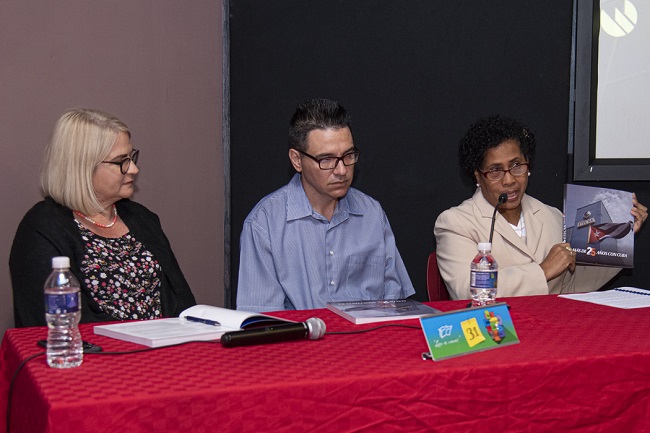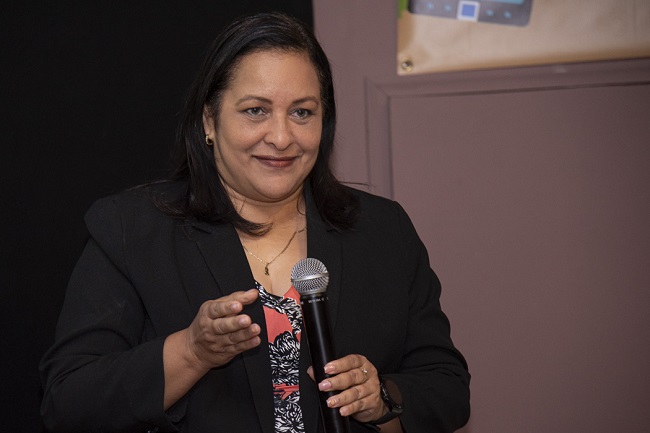Etecsa’s Historical Memory in Images
especiales

Born amidst the economic and social complexities of 1994, Empresa de Telecomunicaciones de Cuba S.A. (ETECSA) has managed to build, over a quarter of a century, an infrastructure of modern technologies that allow sustaining communications and a service platform at national level.
It is, undoubtedly, a story of milestones that marks the evolution of the entity. In it, founders and those who follow make a huge work that is now registered, as a patrimonial treasury and living memory of ETECSA in More than 25 years with Cuba.

Authored by Grisel Ojeda Amador and Yurisander Guevara, with a foreword by Magda Resik and published under the editorial seal of Prensa Latina, the volume was presented on February 15th at San Gerónimo University College in Havana, as part of the activities of the International Book Fair.
The event, which chaired by Mayra Arevich Marín, Minister of Communications; Tania Velázquez Rodríguez, executive president of ETECSA, was attended by workers from the institution, directors of the City Historian's Office and guests from the Latin American Agency Prensa Latina.
Through images and texts, the evolution experienced by telecommunications in the Caribbean nation in these five decades is collected in nearly 290 pages. Likewise, it records the faces and actions of those who had, and have, the mission of supporting that project of the Revolution over time.

"It’s our life and the life of Etecsa." This is how Mayra Arevich Marín summed up the testimonial wealth of the collection, referring to the descriptive value that the photographs treasure. "Each page is a life story, everyone's," she said.
Arevich Marín evoked the difficult moments imposed by the COVID-19 pandemic, when workers faced, with great courage, the challenge of keeping communications active, even on the premises of the so-called "red zones".
In the same way, she exalted the beautiful edition that "I receive as a very special gift", and the careful task of searching for the visual testimonies that the team responsible for the material accepted.
Tania Velázquez Rodríguez invited the authors to give continuity to this beautiful and complex project, since from its initial conception until now, many other events have occurred and must be recorded, she emphasized.

In his capacity as leader of the documentary work, Grisel Ojeda Amador, director of Surveillance and Scientific-Technical Information of the company, recalled the long editorial process since the idea began to take shape, in February 2018. Back then everyone cherished the dream of celebrate the 25th anniversary of Etecsa with the publication of the book.
However, the inconveniences to achieve this endeavor postponed the satisfaction of what is now a certainty: the revealing graphic result that is enjoyed and appreciated.
About what this book means, Ojeda Amador pointed out that it’s a homage to those who founded the entity, but have already finished their working life; «It is a tribute to those who have spent a long time contributing their knowledge and efforts to fulfill our social mission; it’s dedicated to the youngest who, sometimes, do not look at history because they don’t realize what they are doing it ».
As the foreword of More than 25 years with Cuba, Magda Resik described the legacy of Eusebio Leal and José Antonio Roche in the constant work of Cuban telephony.
She also praised the presence of the historical leader of the Cuban Revolution, Fidel Castro, in the possible dream that the country would achieve development in terms of telecommunications, computerization, and technologies as a sovereign nation.

Likewise, Resik highlighted the relevance of having such important text. «It’s praiseworthy that ETECSA takes care... of giving an account of the collected knowledge and experience, of the innovation capacity of its workers, of its technicians, specialists... Perhaps the most beautiful thing when leafing through it is to find in the photographs those who usually do not appear in the showcases because they are at their daily work, determined to provide.
Translated by Amilkal Labañino / CubaSí Translation Staff














Add new comment